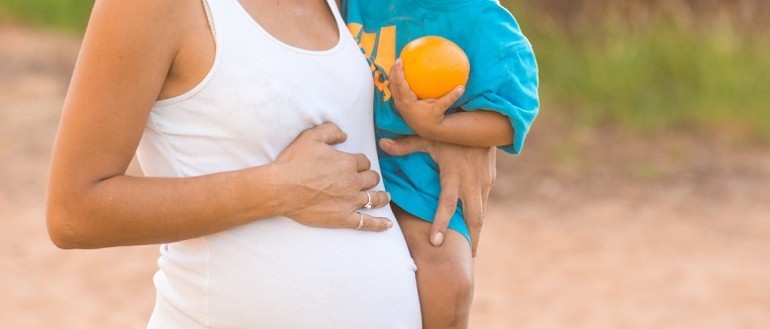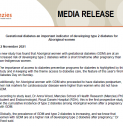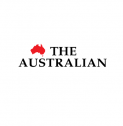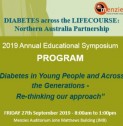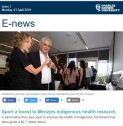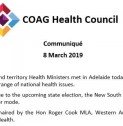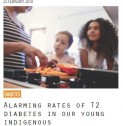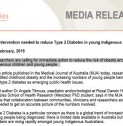Aims:
- To assess outcomes of women with and without hyperglycaemia in pregnancy in the NT and their children.
Summary:
PANDORA is a longitudinal birth cohort study of mothers and their children that will assess outcomes of diabetes in pregnancy in the NT including high-risk Aboriginal women and their children.
The results of this study will contribute to policy and clinical practice guidelines on the management of diabetes in pregnancy and follow-up of mother and baby. The study will also inform the design of further work to reduce risk of future obesity, diabetes and cardiovascular disease in both the mothers and children.
PANDORA Baseline (2012 – 2017)
Recruitment commenced in 2012 and was completed in February 2017. Over 1100 women and their babies, with and without diabetes in pregnancy, were recruited during pregnancy across all NT regions. Participants included women with any type of diabetes in pregnancy (type 1 diabetes, type 2 diabetes, gestational diabetes mellitus) and women without diabetes in pregnancy and their children. Approximately 50% of PANDORA women are Aboriginal and/or Torres Strait Islander women. Our cohort is unique for the high proportion of mothers with pre-existing type 2 diabetes in pregnancy.
The baseline study involved the collection of pregnancy and birth information, and undertaking measurements including cord blood and detailed neonatal body fat assessments.
PANDORA Wave 1 (2016 – 2018)
PANDORA Wave 1 involved follow-up clinical assessments ~2-4 years after baseline of a sub-group of Aboriginal and Europid PANDORA mothers and their babies. Participants were eligible for Wave 1 if at baseline the PANDORA mother had type 2 diabetes, gestational diabetes mellitus or no DIP, and 415 mothers and 423 babies participated.
PANDORA Wave1 aimed to examine cardio-metabolic risk factors in these mothers and their infants in order to identify predictors of chronic disease such as obesity, diabetes and heart disease later in life. We will use information from Wave 1 to assess the maternal and infant consequences of diabetes in pregnancy to then inform the timing and types of interventions to prevent the development of later chronic conditions.
The Wave 1 study involved detailed assessments of both the mother and her child which included: measurements of body size and blood pressure, collection of blood to measure glucose, cholesterol levels markers of inflammation and assessment of epigenetics. Additional assessments for the child included: ultrasound of the aorta blood vessel, body fat measurements (bioimpedance and skin folds), and a developmental assessment. The mothers also completed questionnaires about her and her child including demographics, smoking and alcohol use, nutrition, physical and mental health, and about her child’s development and well-being.
PANDORA Wave 2 (2019 – 2024)
PANDORA Wave 2 is the next follow-up phase of the PANDORA cohort, where all mothers and children 5½ -13 years of age/post-partum will be invited to participate in a health examination. The cohort will also be broadened to include a group of brothers and sisters (6-16 years) of Aboriginal PANDORA children who will be invited to participate.
Study assessment commenced in late 2019 and will continue until mid 2024, to cover the age range of the cohort. Ethics approval has been received from both Top End and Central Australia committees of the NT.
The Partnership has received letters of support from Aboriginal Medical Services Alliance Northern Territory (AMSANT) and two large Aboriginal controlled urban health services; Danila Dilba Health Services and Central Australian Aboriginal Congress. We are in the process of contacting other NT Aboriginal Community Controlled Health Organisations to discuss the study and request their support.
We have approval from the NT Government Health Services to work with remote clinics in both Top End and Central Australia and the hospitals for access to medical records.
PANDORA Mothers
This sub-study involving PANDORA mothers was completed in 2016. It assessed whether enhanced post-pregnancy support for Aboriginal and Torres Strait Islander women with diabetes in pregnancy improved uptake of recommended health checks post-partum. The study also identified the enablers and barriers to undertaking the recommended post-pregnancy health checks. Results have been published (see publications Kirkham et al. ANZJOG 2019).
PANDORA contacts:
Email: pandora@menzies.edu.au or phone (08) 8946 8497
Further information can be accessed through the project website here.
Chief investigator:
Epidemiology Group Head:
Project manager:
Project dates:
The PANDORA study is a longitudinal study, which commenced in 2012. The current wave of data collection is due for completion in mid 2024.
Further information for participants can be found here.
Funders:
- National Health and Medical Research Council (NHMRC).
Collaborators:
- AMSANT
- Healthy Living NT
- Baker IDI Heart and Diabetes Institute
-
Northern Territory Department of Health.
- Newsletter June 2017
- PANDORA Newsletter - December 2015
- NT Diabetes in Pregnancy Partnership Project Newsletter - December 2015
- NT Diabetes in Pregnancy Partnership Project Newsletter - September 2014
- NT Diabetes in Pregnancy Partnership Project Newsletter - May 2014
- NT Diabetes in Pregnancy Partnership Project Newsletter - March 2014
- NT Diabetes in Pregnancy Partnership Project Newsletter - October 2013
-
Aboriginal women with gestational diabetes at increased risk of developing type 2 form, new research shows
New research, led by Darwin's Menzies School of Health Research, shows that Aboriginal women who had gestational diabetes during pregnancy, will have a one-in-four chance of developing type 2 diabetes within two and a half years after giving birth.
-
Media Release | Gestational diabetes an important indicator of developing type 2 diabetes for Aboriginal women
A new study has found that Aboriginal women with gestational diabetes (GDM) are at an increased risk of developing type 2 diabetes within a short timeframe after pregnancy than non-Indigenous women.
-
The Australian | Spotlight on Indigenous diabetes crisis
A new study has found Indigenous children in Northern Australia suffer youth-onset type two diabetes at rates at least 10 times higher than previously thought, and possibly above those anywhere else in the world.
-
Diabetes in poverty-stricken pregnant women in the NT, highest in the world
Researcher and lead author Dr Matthew Hare said, for these women, poverty stricken and living in some of the most isolated regions of Australia, fresh and healthy food is often not for sale where they live or it is unaffordable.
-

Q&A with Menzies endocrinologist, Professor Louise Maple-Brown
Prof Louise Maple-Brown discusses new diabetes guidelines during COVID-19.
-
In remote communities, where more health workers are needed, chronic disease is rising
The community's battle is an example of what Menzies diabetes researcher Louise Maple-Brown says is a growing problem in the Northern Territory.
-

Mix 104.9 | Diabetes Symposium in Darwin
This is the seventh annual gathering of diabetes researchers, health workers and stakeholders to discuss a ‘lifecourse approach’ to preventing and managing diabetes.
-

NT News | Diabetes given centre stage
Menzies School of Health Research will host diabetes experts and health professional from across Northern Australia.
-
Media Alert | Health experts in Darwin to discuss diabetes in pregnancy
Menzies - Diabetes across the Lifecourse: Northern Australia Partnership – Annual Educational Symposium on Friday, 27 September.
-
Sport a boost to Menzies Indigenous health research
Charles Darwin University E-news | Issue 2 Monday, 01 April 2019
-
COAG Health Council | Communiqué 8 March 2019
The Federal, state and territory Health Ministers met in Adelaide at the COAG Health Council to discuss a range of national health issues.
-
Metformin appears safe in treating hyperglycemia during pregnancy
Among indigenous and nonindigenous women in Australia, the use of metformin in treating hyperglycemic conditions during pregnancy, does not lead to serious adverse events.
-
Medical Republic | Alarming rates of T2 diabetes in our young indigenous
Ten years after the “Closing the Gap” targets were laid out, a health disaster is emerging.
-
NACCHO Aboriginal Health | #Obesity #Diabetes News
Type 2 Diabetes is a particular concern as there is a global trend of increasing numbers of young people being diagnosed, there is limited data available in Australia but anecdotally numbers are rising rapidly amongst young Indigenous Australians.
-
Intervention needed to reduce Type 2 Diabetes in young Indigenous Australians
Researchers are calling for immediate action to reduce the risk of obesity and diabetes in Indigenous children and young people.
-
Diabetes project | Cairns Post
A PROJECT aimed at improving health outcomes, systems of care and services for women with diabetes in pregnancy, has made its way to the Far North.
-
Newsletter June 2017
-

Cherie Whitbread 2017 Midwife of the Year
Cherie Whitbread received the award of 2017 Nurse/Midwife of the Year! Picture: Justin Kennedy NT News
-
New research may help break the cycle of intergenerational diabetes
New research, at Menzies within the NT Diabetes in Pregnancy Partnership Project led by Associate Professor Louise Maple-Brown will be funded by Diabetes Australia. Researches will investigate the barriers to Aboriginal and Torres Strait Islander mothers accessing optimal healthcare during pregnancy and may help to address the intergenerational cycle of diabetes.
-
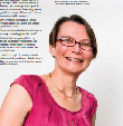
TerritoryQ: Dedicated Life, Assoc Prof Louise Maple-Brown
A/Prof Louise Maple-Brown is dedicating her life to a grim epidemic - diabetes among Indigenous people. She particularly focuses on diabetes in pregnant women.
-

NHMRC fellowship snapshot: Associate Professor Louise Maple-Brown
Menzies’ Associate Professor Louise Maple-Brown was recently awarded a Practitioner Fellowship as part of the National Health and Medical Research Council’s latest multi-million dollar funding round.
-

Specialists calls for greater focus on diabetes in pregnancy this National Diabetes Week
To mark National Diabetes Week 2014 (13-19 July), one of Australia’s leading diabetes specialists has called for greater awareness about the importance of early screening for high-risk women in order to diagnose type 2 diabetes in pregnancy.
- Longmore, D.K., Barr, E.L.M., Barzi, F., Lee, I-L., Kirkwood, M., Connors, C., Boyle, J., O’Dea, K., Zimmet, P., Oats, J., Catalano, P., McIntyre, H.D., Brown, A.D.H, Shaw, J.E. & Maple-Brown, L.J., on behalf of the PANDORA study research team. (2020). Social and economic factors, maternal behaviours in pregnancy and neonatal adiposity in the PANDORA cohort. Diabetes Research & Clinical Practice, 161. doi: 10.1016/j.diabres.2020.108028.
- Lee, I., Barr, E.L.M, Longmore, D., Barzi, F., Brown, A., Connors, C., Boyle, J., Hampton, V., Lynch, M., Lu, Z.X., O’Dea, K., Oats, J., McIntyre, H.D., Zimmet, P., Shaw, J.E., & Maple-Brown, L. (2020). Cord blood metabolic markers are strong mediators of the effect of maternal adiposity on fetal growth in pregnancies across the glucose tolerance spectrum: the PANDORA study. Diabetologia, 63(6), 497-507. doi: 10.1007/s00125-019-05079-2.
- Cheng, E., Longmore, D., Barzi, F., Barr, E., Lee, I., Whitbread, C., Boyle, J., Oats, J., Connors, C., McIntyre, H.D., Kirkwood, M., Dempsey, K., Zhang, X., Thomas, S., Williams, D., Zimmet, P., Brown, A.D.H., Shaw, J.E., & Maple-Brown, L. (2019). Birth Outcomes in women with gestational diabetes managed by lifestyle modification alone: The PANDORA study. Diabetes Research and Clinical Practice, 157,107876. doi:10.1016/j.diabres.2019.107876
- Maple-Brown, L., Lee, I., Longmore, D., Barzi, F., Connors, C., Boyle, J.A., Moore, E., Whitbread, C., Kirkwood, M., Graham, S., Hampton, V., Simmonds, A., Van Dokkum, P., Kelaart, J., Thomas, S., Chitturi, S., Eades, S., Corpus, S., Lynch, M., Lu, Z.X., O'Dea, K., Zimmet, P., Oats, J., McIntyre, H.D., Brown, A.D.H., & Shaw, J.E. (2019). Pregnancy and Neonatal Diabetes Outcomes in Remote Australia: The PANDORA Study, an observational birth cohort. International Journal of Epidemiology, 48(1), 307-318.
- Longmore, D., Barr, E., Lee, I., Barzi, F., Kirkwood, M., Whitbread, C., Hampton, V., Graham, S., Van Dokkum, P., Connors, C., Boyle, J., Catalano, P., Brown, A., O'Dea, K., Oats, J., McIntyre, D., Shaw, J., & Maple‐Brown, L. (2019). Maternal body mass index, excess gestational weight gain, and diabetes are positively associated with neonatal adiposity in the Pregnancy and Neonatal Diabetes Outcomes in Remote Australia (PANDORA) study. Paediatric Obesity, 14, e12490. doi: 10.1111/ijpo.12490.
- Lee, I., Purbrick, B., Barzi, F., Brown, A., Connors, C., Whitbread, C., Moore, E., Kirkwood, M., Simmonds, A., Van Dokkum, P., Death, E., Svenson, S., Graham, S., Hampton, V., Kelaart, J., Longmore, D., Titmuss, A., Boyle, J., Brimblecombe, J., Saffery, R., d'Aprano, A., Skilton, M.R., Ward, L.C., Corpus, S., Chitturi, S., Thomas, S., Eades, S., Inglis, C., Dempsey, K., Dowden, M., Lynch, M., Oats, J., McIntyre, D., Zimmet, P., O'Dea, K., Shaw, J., & Maple-Brown, L. (2018). Cohort Profile: The Pregnancy and Neonatal Outcomes in Remote Australia (PANDORA) Study. International Journal of Epidemiology, 47(4),1045-1046h.
- Maple-Brown, L., Brown, A., Lee, I-L., Connors, C., Oats, J., McIntyre, H.D., et al. (2013). Pregnancy and Neonatal Diabetes Outcomes in Remote Australia (PANDORA) study. BMC Pregnancy & Childbirth, 13, 221.

